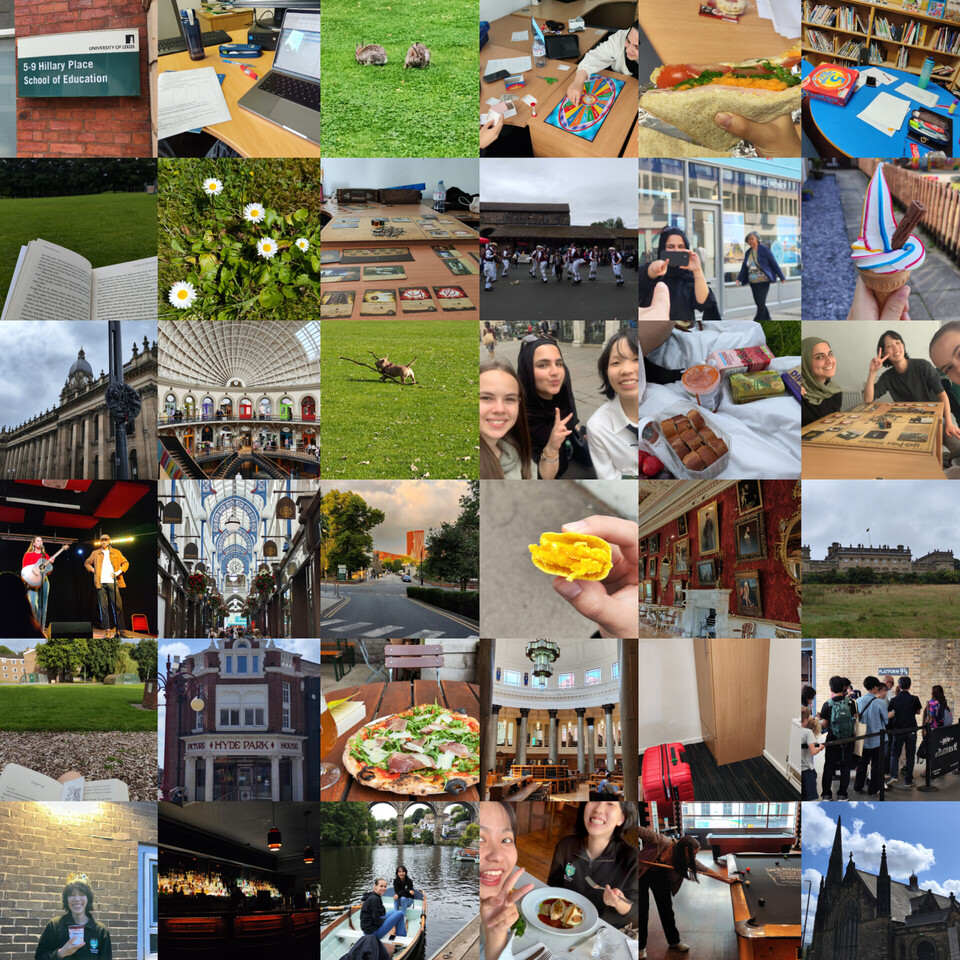Leeds, New York & Taiwan: Global Citizenship and Ethical Leadership Blog

It’s a cliché, but time truly does fly by. It feels like just yesterday I was fretting over my scholarship application. Then suddenly, I find myself in Leeds for a six-week research project, followed by a whirlwind trip to New York to present my findings, and now, I am counting down my final days in Taiwan for my LiA. While I struggle to recall each passing second, certain moments have etched themselves into my memory like precious fragments of my life.
With that, I’m talking about my arrival in Leeds, fighting back tears of isolation as my friend Helen urged me to eat. The time I spent my birthday in a vintage theater, watching a 3-hour art movie that I still can’t comprehend, then getting a free pint of beer at the pizzeria down the street from my dorm (they carded me for legal drinking age). I recall the incredulous expressions shared between Helen, Fatima, and myself when primary school kids put game cards in their mouths, and our subsequent frantic handwashing once the session concluded.
I’m talking about the deadline fight for my conference presentation, pacing in my hotel room with the tune of "You'll Be Back" from Hamilton playing on loop in my mind, which I watched with Grace and Tevin a day ago on Broadway. I am also talking about the awkward blankness I felt while Taiwanese aunties enthusiastically spoke to me in Taiwanese Hokkien, a language I couldn’t comprehend.
Unbeknownst to me, these moments have woven themselves into the fabric of my being. I find myself saying how this autumn “feels like New York’s Central Park” or how this lake “reminds me of the one at Harewood House in Leeds.” These experiences are blended into my speech and my perspective. I began to be more conscious—curious about things that happened to these parts of the world that I usually don’t care about; emotionally attached to the tragical or commendable events; and sometimes, introducing (or at least trying to relate) myself as a part of the community. By immersing myself in these cities, breathing the same air as the locals, I've absorbed fragments of their identities, molding myself into a citizen of these places, if not wholly, then at least partially. I can now relate to their past and future through the moments I've cherished. These are no longer just words or sentences but vivid scenes and individuals I've engaged with. Inadvertently, I've embraced a global citizenship.
At the same time, I have learned another thing: home. A concept I never understood until I ventured away from my own abode and dwelled in someone else's. I've had to adapt to new customs, palates, and the awareness that I am merely a guest, never truly part of these homes.
In psychological terms, this experience embodies Double Consciousness, a state where individuals perceive themselves both as they are and as objects under the scrutiny and judgment of the dominant group. While not outright discrimination, people assumed my English proficiency and when I asked “Pardon?”, they just gave up explaining to me. Walking the streets, I am acutely aware that I am different. This heightened self-awareness creates illusions of alienation that may not truly exist. This sensation is unfamiliar to me at my home (Hong Kong), where I am in the majority. It prompts me to ponder: do racial minorities in Hong Kong harbor similar sentiments? Are they unable to embrace the city as their own due to their ethnicity, despite being born and raised here?
This reflection extends to leadership, particularly within a global team. How would each team member think and act? Will they lose a sense of self when they are situated in the minority group, where “minority” becomes the only label they carry? Maybe they are “smart,” “creative,” “optimistic,” but all traits are covered by the ethnicity label of “Asian.”
There are unlimited theories in the world, but only the ones we live through are the ones that stay.
I cannot predict precisely how these encounters will shape me as an ethical leader, but I am certain that these emotions and reflections are the foundation of empathy— a quality that propels us to act not only within legal boundaries but also within moral ones.


Please sign in
If you are a registered user on Laidlaw Scholars Network, please sign in